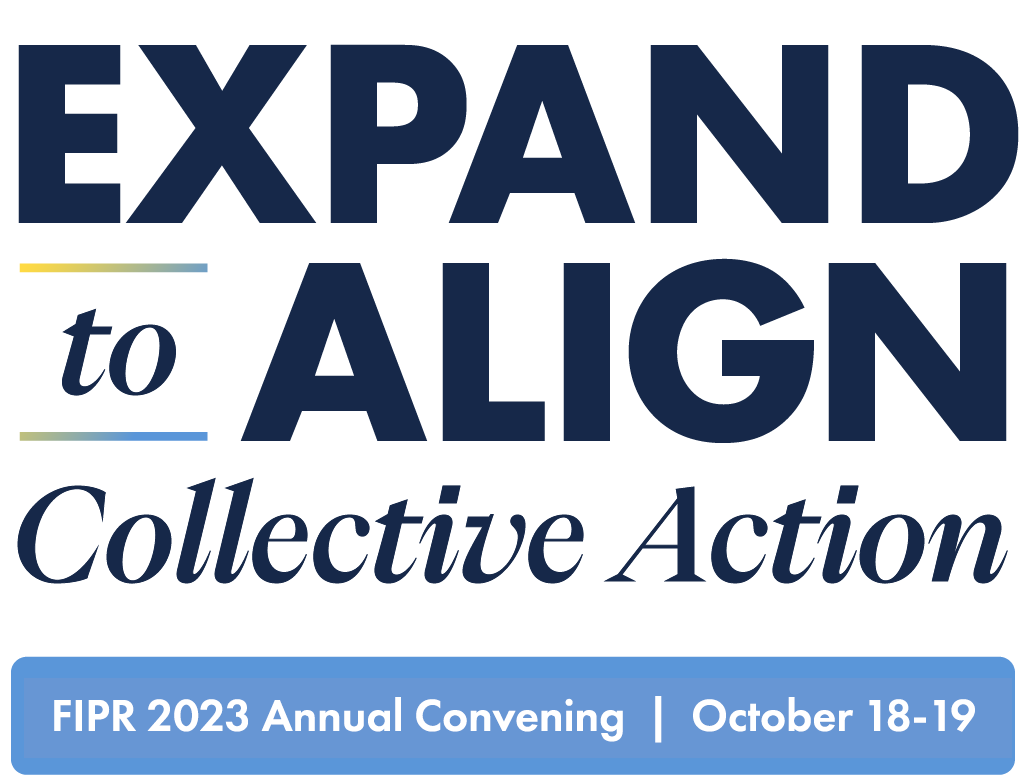
Save the date for our 2023 Annual Convening October 18-19! This event is exclusively designed for funders and grantmakers working on the island. Join us as sector leaders, disruptors, and innovators come together to explore transformational practices that are reshaping the landscape of giving.
October 18-19, 2023
@ Caribe Hilton, San Juan PRAs the main connector within the philanthropic ecosystem of the archipelago, we have been actively preparing for this event. Throughout the year, we have sustained spaces that promote conversations and drive actions, aiming to better support organizations within the realities of Puerto Rico. This year we are designing an experience to expand our individual perspectives and embrace diversity, allowing us to strategically address complex challenges and align our collective efforts. That’s why we are calling our annual convening: Expand to Align Collective Action.
It’s time for us to broaden our network and contribute valuable resources, expertise, and diverse perspectives towards our collective action. By coming together, we can make a significant impact in advancing equity in Puerto Rico.
More details coming soon! In the meantime, if you have any questions or need assistance regarding the program or logistics, please don’t hesitate to reach out to Anja Paonessa: [email protected].
Our program features amazing keynote speakers, interactive workshops, groundbreaking research releases, networking opportunities, and much more.
Wednesday, October 18
8:30am - 9:00am Registration & Breakfast
9:00am - 9:30am Welcome to our annual convening
9:30am - 11:00am Commonwealth of Calamity: Learning from Puerto Rico’s Disaster History
11:00am - 12:30pm Sociodemographic Context of Puerto Rico and its Municipalities: where are we?
12:30pm - 1:30pm Lunch
1:30pm - 3:00pm Agriculture in Puerto Rico: a Statistical Perspective
3:00pm - 4:15pm Housing Sector: characteristics of the economy and post-disaster context
4:15pm -5:00pm Unpacking the Short-Term Rental Dilemma
5:00pm -6:30pm 5:00pm - 6:30pm: Networking & Cocktails
Thursday, October 19
8:00am - 9:00am Peer Learning: Centering Equity in our Communities (Breakfast co-hosted with Magic Cabinet)
9:30am - 11:00am Puerto Rico in the 2020 Census: Ethnicity and Race Reporting
11:00am - 12:00pm Pathways to leveraging the federal tax credits for solar in Puerto Rico
12:00pm - 1:00pm Lunch
12:00pm - 1:00pm Optional Session: Filantropía Puerto Rico's Annual Meeting
1:00pm - 2:30pm Billions: The power of catalytic capital
2:30pm - 4:00pm Puerto Rico Economic Situation: What does the data show us?
4:00pm - 7:30pm Junte social! at MADMI
Commonwealth of Calamity: Learning from Puerto Rico’s Disaster History
By examining key disasters throughout the twentieth and twenty-first centuries as case studies, this session showcases how learning from history can inform better practices of present-day collective action.
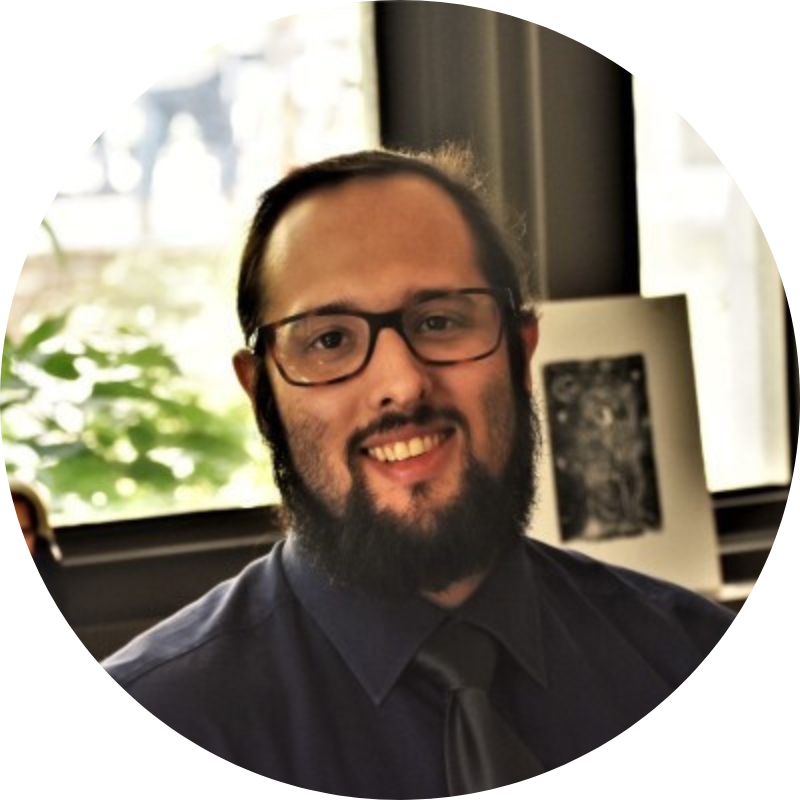
Ian Seavey
Predoctoral Fellow in International Security Studies at Yale University’s Jackson School of Global Affairs and PhD candidate in the department of history at Texas A&M University
His research examines U.S. empire in the Caribbean through the lens of disaster relief, environmental policy, and rum production. His dissertation and subsequent book manuscript, “Colonial Calamities: The Politics of U.S. Disaster Relief in Puerto Rico, 1898-1979,” tells the story of how evolving ideas about disaster relief fundamentally shaped and continue to shape the colonial relationship between the Puerto Rico and the United States. He has published articles in a variety of venues including the Journal of Advanced Military Studies, AHA Perspectives, and the Journal of Environmental Hazards. His research has been funded by the Harry S. Truman Library Institute, the Albritton Center for Grand Strategy, and Yale’s Brady-Johnson Program in Grand Strategy. In his free time, he enjoys playing guitar in various heavy metal bands.
Sociodemographic Context of Puerto Rico and its Municipalities: where are we?
Understanding socio demographic data is fundamental for informed decision-making, effective policy formulation, equitable resource distribution, and the overall development and well-being of a country’s population. In this session, we will discuss the latest demographic trends.
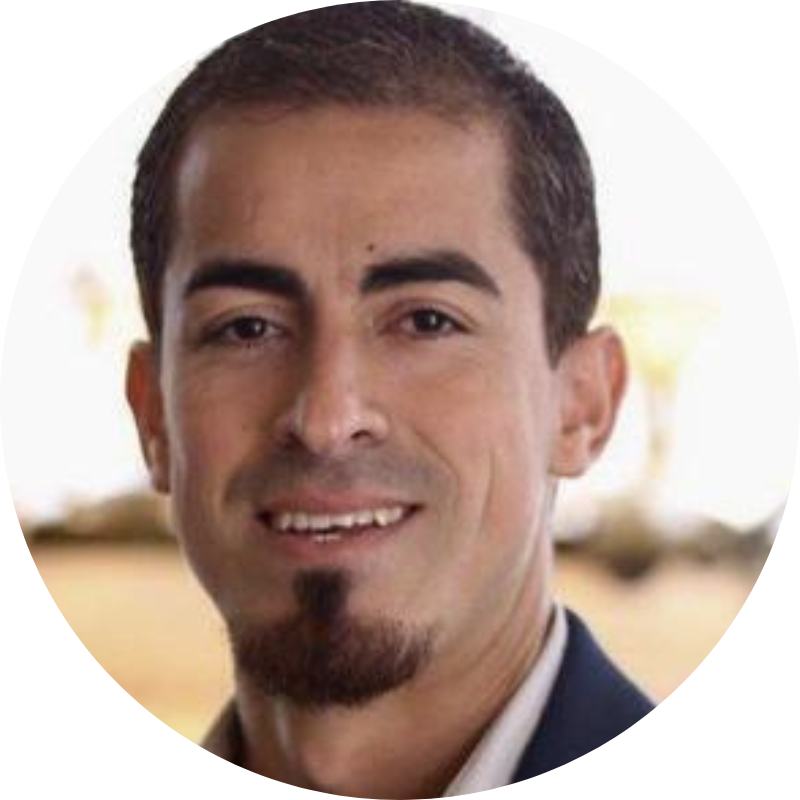
Alberto Velázquez
Instituto de Estadísticas
Alberto Velázquez Estrada is a member of the Puerto Rico Institute of Statistics team, serving as Senior Project Manager. Since 2013, he has been coordinating projects such as the State Data Center Program – Census Data and Information Centers chapter for Puerto Rico, the Migrant Profile, and representing Puerto Rico in the Federal State Cooperative for Population Estimates of the U.S. Census Bureau, among other demographic and geographic projects. He earned a bachelor’s degree in Social Sciences with a concentration in Geography from the Río Piedras Campus of the University of Puerto Rico and a master’s degree in Demography from the Graduate School of Public Health at the Medical Sciences Campus of the same institution. Upon completing his graduate studies, he worked as an intern at the Demographic Surveys Division of the U.S. Census Bureau and as a coordinator and data analyst in the Ryan White Program at the Department of Health of Puerto Rico.
Agriculture in Puerto Rico: a Statistical Perspective
This presentation discusses Puerto Rico’s agriculture and food security in relation to the UN Sustainable Development Goals. It covers the historical importance of agriculture, Puerto Rico’s agricultural legacy, current challenges, and past agricultural reforms in the region.
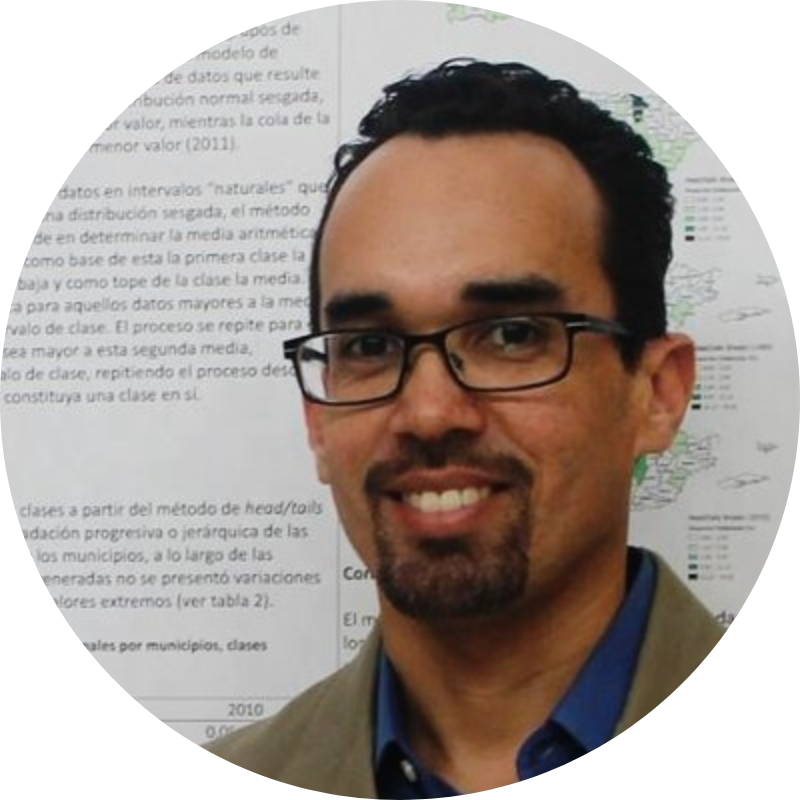
Dr. Francisco Pesante
Project manager and coordinator of the Academies and Workshops Program, Puerto Rico Institute of Statistics
Dr. Francisco Pesante González is a project manager and coordinator of the Academies and Workshops Program at the Puerto Rico Institute of Statistics. He has worked at this agency for the past 13 years and has co-authored publications such as the Interactive Profile of Child Abuse, the Human Development Report, and the 2015 Food Security Report in Puerto Rico, among others. Prior to this role, he was an Analyst in Management and Planning at the Department of Justice. He completed a doctorate in history, specializing in the topic of agrarian public policies in 20th-century Puerto Rico.
Housing Sector: characteristics of the economy and post-disaster context
We will delve into the current post-disaster landscape, with a focus on key information sources. This exploration will encompass an overview of the economic and housing sectors’ essential attributes within this context. Additionally, we will examine pertinent variables of interest and sources of data, culminating in an interactive question and answer session.
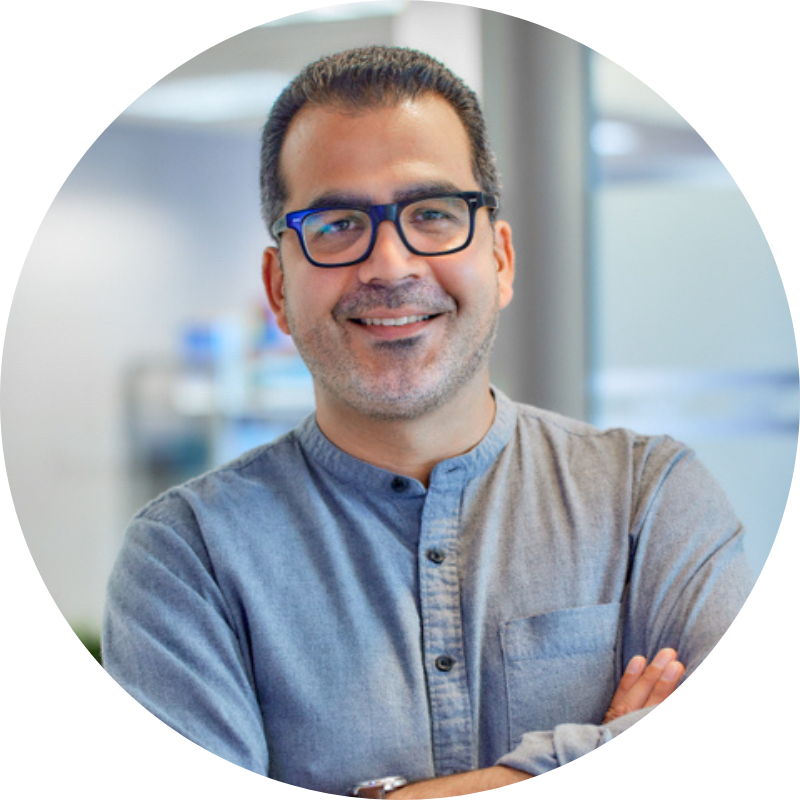
Deepak Lamba-Nieves
Director of Research, Center for a New Economy
Deepak Lamba-Nieves is the Director of Research and holds the Churchill G. Carey, Jr. Chair of Economic Development Research at the Center for a New Economy (CNE). He also teaches at the Graduate School of Planning at the University of Puerto Rico. Deepak has been researching the socioeconomic perspectives and development trajectories of Puerto Rico for two decades. Currently, he is working on research projects focused on post-disaster reconstruction as part of the CNE’s Blueprint Initiative, a collective effort aimed at defining a path for housing and land use in Puerto Rico. Deepak was a postdoctoral fellow at the Watson Institute for Public and International Affairs at Brown University and completed a Ph.D. in Urban and Regional Studies in the Department of Urban Studies and Planning at the Massachusetts Institute of Technology (MIT).
Unpacking the Short-Term Rental Dilemma
In this presentation, we’ll explore the findings of a study on short-term rentals in Puerto Rico, focusing on their significant impact on the economy, communities, and individuals.
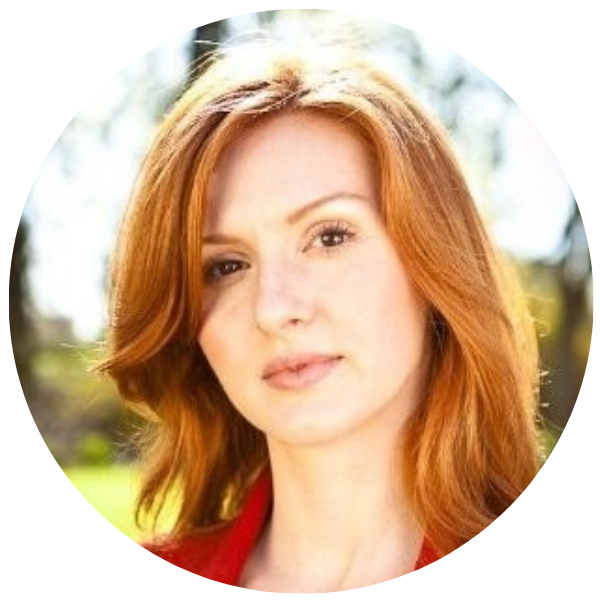
Charlotte Gossett Navarro
Charlotte Gossett Navarro
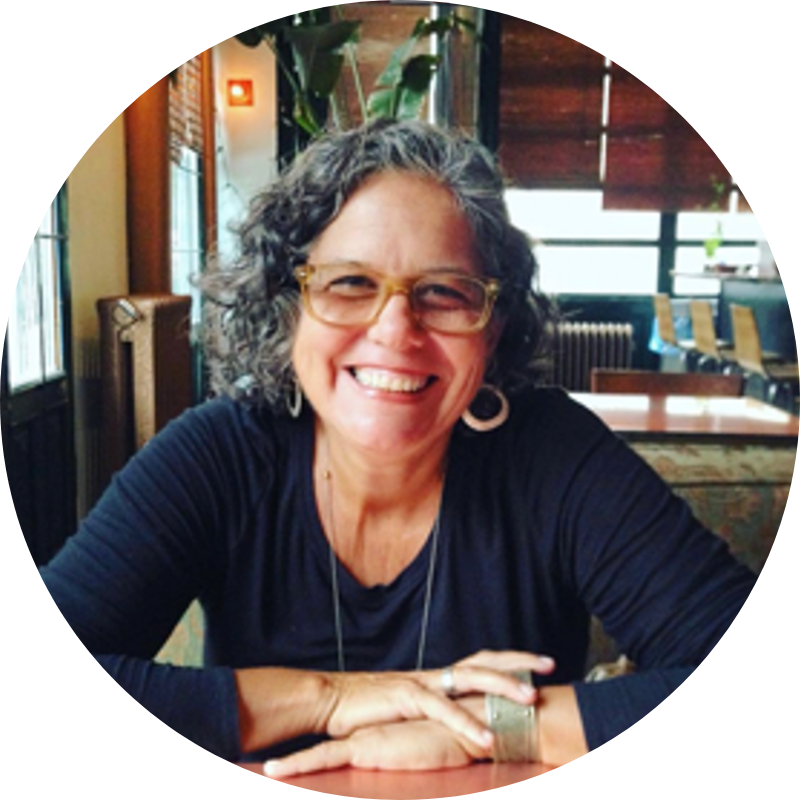
Dulce del Rio-Pineda
Mujeres de Islas
Dulce del Rio-Pineda’s connection with Culebra began in the 1980s when she took on the role of coordinating summer camps for children with functional diversity. Already a qualified biologist and educator with a Master’s in Special Education from NYU, her experience in Culebra became a cornerstone in her life’s journey.
In 2010, Dulce’s dedication to the island manifested even further. She co-founded Mujeres de Islas, a non-profit organization committed to fostering Culebra’s sustainable development. With a passionate focus, Dulce constantly champions the need for quality community services, while also underscoring the importance of social equity and justice.
Inspiration for her leadership and vision stems from the formidable women in her lineage and circle, including her mother, aunts, friends, and now her granddaughter. These women have shaped her perspectives, driving her to advocate for unity, resilience, and community involvement.
Beyond her professional commitments, Dulce finds solace in the embrace of nature. She’s particularly fond of the beach and relishes crafting, sewing, and sailing. Most recently, her cherished moments involve the company of her granddaughter.
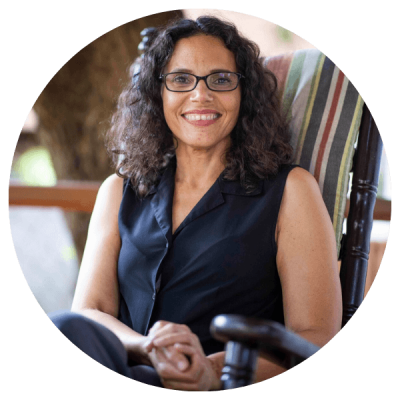
Lyvia N. Rodríguez Del Valle
Lyvia is an urban and regional planner who has worked for 28 years in issues related to the right to the city, risk management, collective land tenure as a means to prevent displacement in self-built settlements, and participatory action-planning. She was the founding executive director of the internationally renowned Proyecto ENLACE del Caño Martín Peña, and the innovative, World Habitat Award recipient Fideicomiso de la Tierra del Caño Martín Peña.
As cofounder of El Enjambre, Lyvia accompanies organizations striving to strengthen their grassroots work as it connects to wider issues. She continues to explore the regularization of self-built settlements through collective land tenure and just transitions as a strategy of adaptation to climate change. Occasionally, Lyvia teaches at the Graduate School of Planning, University of Puerto Rico.
Puerto Rico in the 2020 Census: Ethnicity and Race Reporting
We continue to examine the census data, which helps identify disparities and inequalities in society based on factors like age, gender, ethnicity, income, and education. This knowledge is vital for promoting social inclusion and advocating for policies that promote equality.
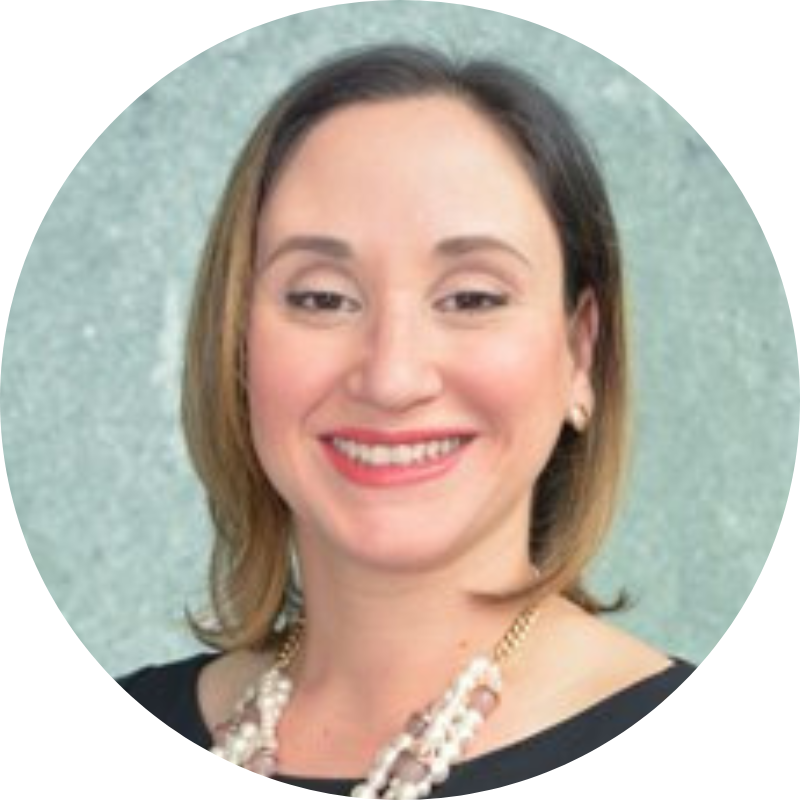
Merarys Ríos-Vargas
Chief, Ethnicity and Ancestry Branch, Population Division, U.S. Census Bureau
Merarys Ríos-Vargas is chief of the Population Division’s Ethnicity and Ancestry Branch at the U.S. Census Bureau. In this role, Ríos-Vargas serves as a subject matter expert while leading, and advising research on the reporting patterns and demographic characteristics of the Hispanic Origin population and ancestry groups in the United States, Puerto Rico, and the Island Areas.
Throughout her career, Ríos-Vargas has conducted extensive outreach, presentations, and workshops to various stakeholder groups. She has represented the Census Bureau in numerous interviews as a commentator and subject matter expert on Voice of America, CNN, Telemundo, Univision, and other international media outlets. Ríos-Vargas has authored and co-authored numerous publications, including Race Reporting Among Hispanics: 2010, The Hispanic Population: 2010, Understanding Counts of Afro-Latino Responses in the 2020 Census and several America Count Stories on the Hispanic Population.
Merarys began her career at the Census Bureau in 2006 as a survey statistician in the American Community Survey Office’s Education, Communication and Outreach Branch. She received a Master’s degree in Demography (2008) and a Bachelor’s degree in Sociology (2004) from the University of Puerto Rico. In 2009, she completed a Master’s Certificate in Project Management from George Washington University. Rios-Vargas is the recipient of five U.S. Census Bureau Bronze Medal Awards for her contributions to the 2010 and the 2020 Decennial and Island Areas Census.
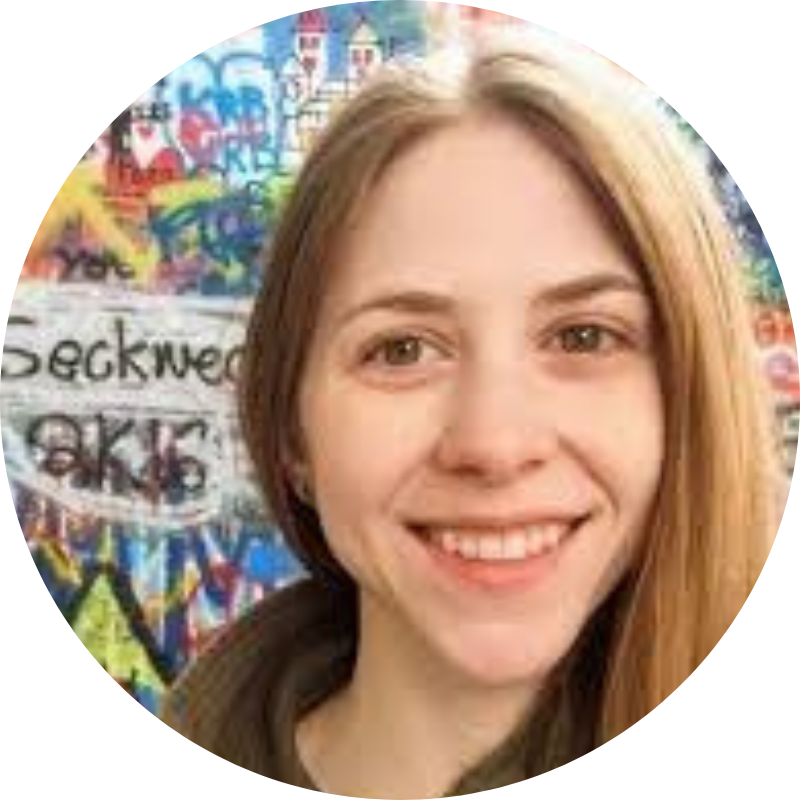
Rachel Marks
Chief, Racial Statistics Branch, Population Division
Rachel Marks is chief of the Racial Statistics Branch in the Census Bureau’s Population Division. She leads a research team that analyzes data on race and ethnicity from the 2020 Census, 2020 Island Areas Census, American Community Survey, and the Current Population Survey. She advises and guides research focusing on the reporting patterns of racial and ethnic groups in the United States, Puerto Rico, and other Island Areas.
Rachel has conducted extensive outreach, presentations, and workshops with various stakeholder groups throughout her career and was a lead researcher for the 2015 National Content Test, which examined alternative ways to collect data on race and ethnicity. She is a leading expert on the Middle Eastern and North African population in the United States – and has authored many reports and presentations.
Rachel joined the Census Bureau in 2007 as a survey statistician in the Decennial Management Division’s Puerto Rico, Island Areas, and Overseas Enumeration Branch. She has a master’s degree in sociology from the University of New Hampshire and a bachelor’s degree in sociology from Shippensburg University in Pennsylvania. She also completed a master’s certificate in project management at George Washington University.
Pathways to leveraging the federal tax credits for solar in Puerto Rico
Discussing philanthropic strategies for solar solutions is crucial for addressing energy access, climate change, and equity, especially concerning the $1 billion Puerto Rico Energy Resilience Fund and its potential to drive sustainable energy and innovation in Puerto Rico.
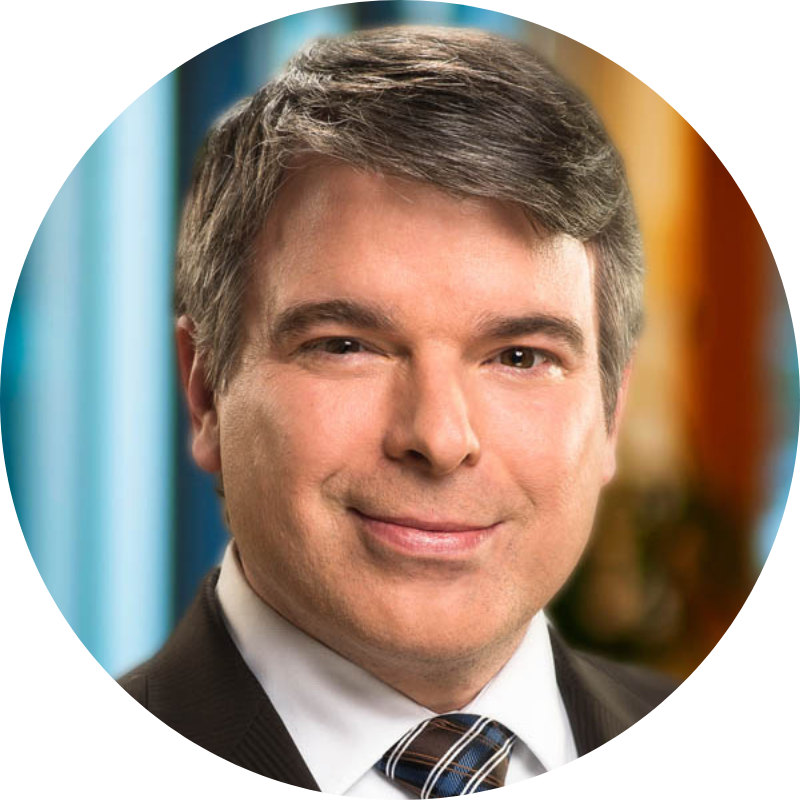
Joe Evans
Portfolio Director and Social Investment Officer, Kresge Foundation
Joe Evans is the portfolio director and social investment officer at The Kresge Foundation’s Social Investment Practice. He oversees various types of investments that align with Kresge’s mission, including loans, guarantees, deposits, and equity investments. Joe is dedicated to originating, structuring, and finalizing new investments in line with responsible social investment practices, applicable regulations, and foundation priorities. He joined the foundation in 2014 after more than a decade of experience in organizational development, nonprofit business planning, and social investing with a prominent consulting firm.
In addition to his consulting background, Joe has served in various roles, including as an executive at a community action agency and as the director of lending for a community development financial institution focused on housing and education for individuals with disabilities and their families. He holds a bachelor’s degree in philosophy from Southern Connecticut State University.
Optional Session: Filantropía Puerto Rico's Annual Meeting
We’ll provide an overview of FiPR’s key accomplishments and efforts aimed at advancing meaningful social investments.

Glenisse Pagán
Executive Director, Filantropía Puerto Rico
Glenisse was born, raised and lives in Puerto Rico where she leads a multi-passionate life learning, teaching, challenging others and being challenged. She also loves technology, nature, adventure, but above all, she lives to inspire people to take action and to help them find their purpose.
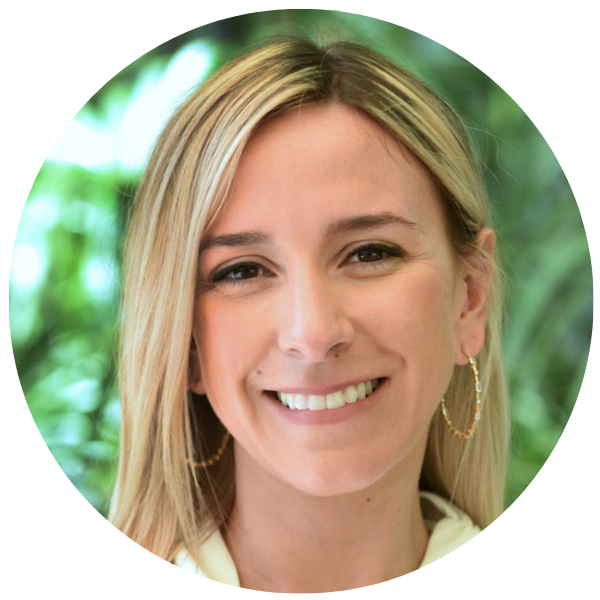
Anja Paonessa
Membership & Operations Officer, Filantropía Puerto Rico
Billions: The power of catalytic capital
Blended capital involves strategically combining various types of funding, including public, private, and philanthropic, to generate both social and environmental impact while also aiming for financial returns—a promising approach in financing to tackle intricate challenges and foster sustainable development.
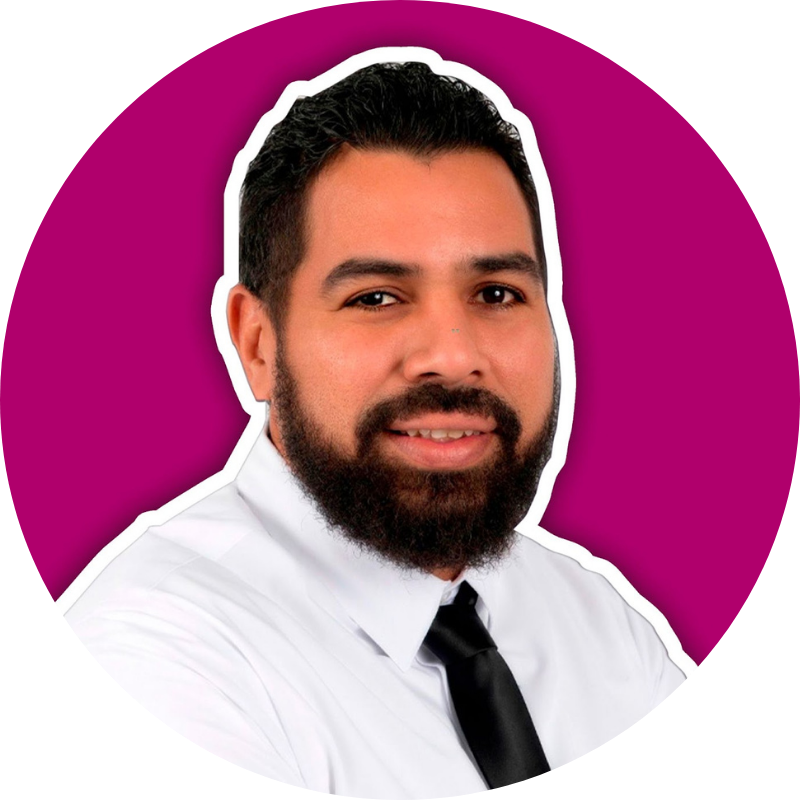
Eduardo Carrera
CEO, Platform for Social Impact
Eduardo Carrera has raised and successfully deployed $120M in blended capital for social impact projects in Puerto Rico. He comes into the Platform for Social Impact (PSI) after two decades of serving as COO and later CEO of the Boys and Girls Clubs of Puerto Rico. Some of his achievements include the creation of Vimenti, the first school in Puerto Rico with a two-generation educational model. He also founded the Youth Development Institute, the leading force behind the unanimous passing of law 84 of 2021 which established a ten-year policy roadmap to reduce child poverty on the Island.
Puerto Rico Economic Situation: What does the data show us?
Puerto Rico economic trajectory has been erratic. As in previous periods, the economy is now growing but significant challenges remain: poverty has increased, and the likelihood of future growth is not promising. I will discuss data on the demographic dynamics, employment, poverty, and inflation, among other economic aspects.

José Carabllo Cueto, PhD
Associate Professor, University of Puerto Rico at Río Piedras
José Caraballo-Cueto currently works as an Associate Professor in the graduate business school in the University of Puerto Rico at Rio Piedras. He worked for eight years in the University of Puerto Rico at Cayey, where he was also a regular researcher in the Institute for Interdisciplinary Research and the Director of the Census Information Center of Puerto Rico. Caraballo completed a Ph.D. in economics at The New School for Social Research in 2013, where he specialized in econometrics (a branch of statistics) and development, obtaining honors in the latter. He has obtained grants from the National Institute of Health, the Open Society Foundation, the Segarra-Boerman Foundation, the Global Foundation for Democracy and Development based in New York, the Youth Institute of Puerto Rico, and the Foundation Network, among other grants to study topics related to human development. He was a Visitant Scholar in Princeton University and recently was recognized as an “emerging scholar in the US” by the magazine Diverse Issues. He has published twenty peer-reviewed articles in international outlets including: “The effect of consecutive disasters on educational outcomes” in the International Journal of Disaster Risk Reduction (with Eileen Segarra, Yolanda Cordero and Héctor Cordero), “Colorism and Health Disparities in Home Countries: The Case of Puerto Rico” in the Journal of Immigrant and Minority Health (with Isar Godreau); Balancing Fiscal and Mortality Impact of SARS-CoV-2 Mitigation Measurements” in Letters in Biomathematics (with Maytee Cruz); “Balanced Versus Unbalanced Growth: Revisiting the Forgotten Debate with New Empirics” in the Review of Development Economics (with Xiao Jiang and Chau Ngoyen), “Do Gender Disparities Exist Despite a Negative Gender Earnings Gap?” in the journal Economia (with Eileen Segarra), “From Deindustrialization to Indebtedness: The Case of Puerto Rico” (with Juan Lara in the Journal of Globalization and Development), “Free trade Zones, Liberalization, Remittances, and Tourism, for what? Jobless Growth in the Dominican Republic” (in the International Journal of Development Issues), and “How (not) to Estimate GDP at the Sub-State Level: the Usefulness of the Economic Census” (in The Review of Regional Studies).
He has also published one book and more than 150 essays in Puerto Rico and in international outlets. Caraballo-Cueto participate as a reviewer in several academic journals including the World Bank Economic Review, Review of Political Economy, Journal of Immigrant and Minority Health, and the Journal of Asian Economics. He is the past president of the Puerto Rico Association of Economists and a regular contributor to the research platform “Econolatin”, managed by the Autonomous University of Madrid.
He had more than 140 presentations in academic conferences in different countries including in Yale University, Rutgers University, in the American States Organization, and in the United Nations. Dr. Caraballo was the General Coordinator of the first Human Development Report of Puerto Rico, a multi-sectoral research project done in tandem with the United Nations. He also worked as a Statistical Project Manager in the Puerto Rico Institute of Statistics, where he was Chair of the Subcommittee of Economic Statistics. He is a member of several academic associations and a regular speaker in the media.
Let’s Lean in to Co-Create
We’ll kick off our Annual Convening 2022 with a workshop of why we are ready to Lean In. We believe that it’s time to share those experiences and find ourselves in other people’s stories.

Glenisse Pagán

Anja Paonessa
Trust-Based Philanthropy Practices
In these times of dramatic change, as grantmakers we have a responsibility to examine our decision-making practices to see how they have contributed to systemic inequalities and how they contribute to a more just and equitable social sector.
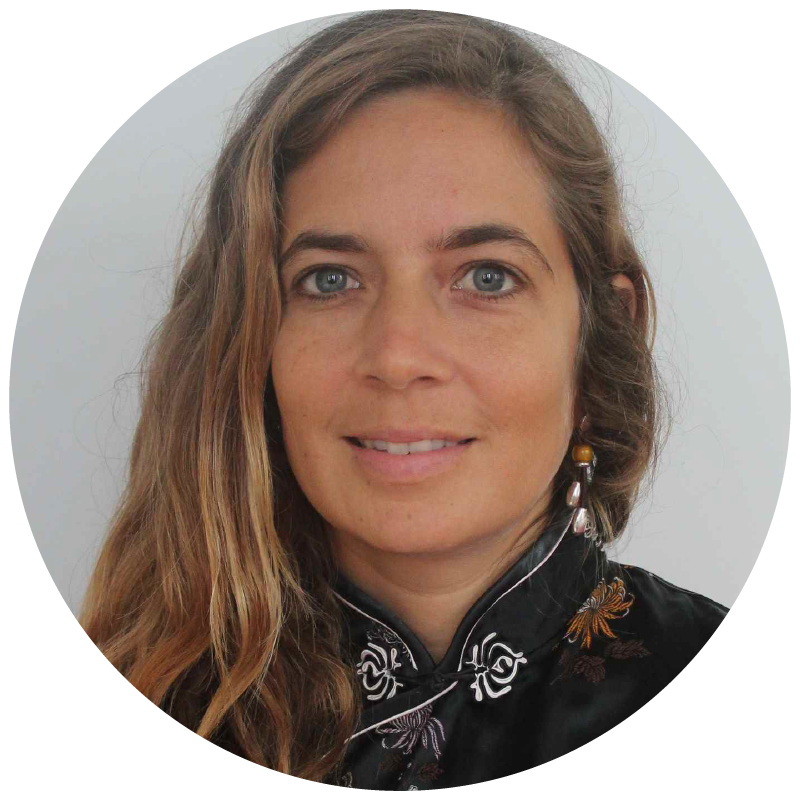
Alexandra Hertell
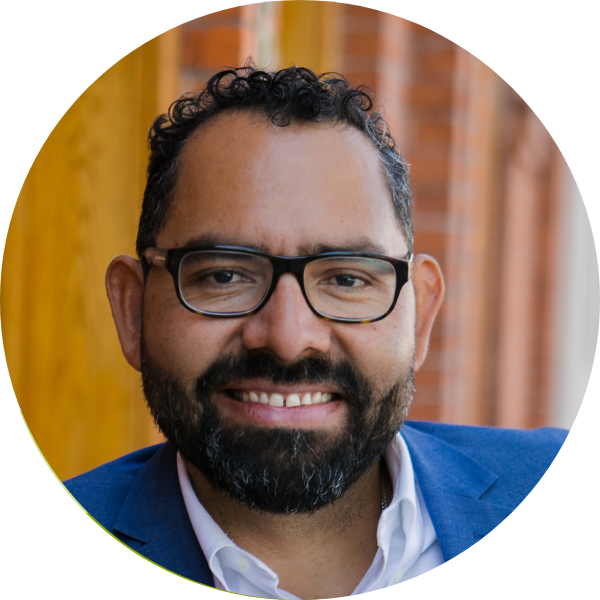
Mynor Veliz
Strength through Solidarity - Management Commons and the Future of Nonprofit Resource Sharing
Fiscal sponsorship is leading the way in promoting diversity, equity, and more efficient and inclusive access to backbone services and philanthropic resources. Funders are playing a critical role in the growth of the fiscal sponsorship field.

Colibri Sanfiorenzo

Josh Sattely

Thaddeus Squire
Learning to Listen: Workshop to Co-Create
Through this session, we want to encourage entities to reflect on the collective they seek to support by critically analyzing the experiences and lessons learned by Filantropía Puerto Rico through the “Learning to Listen” project.
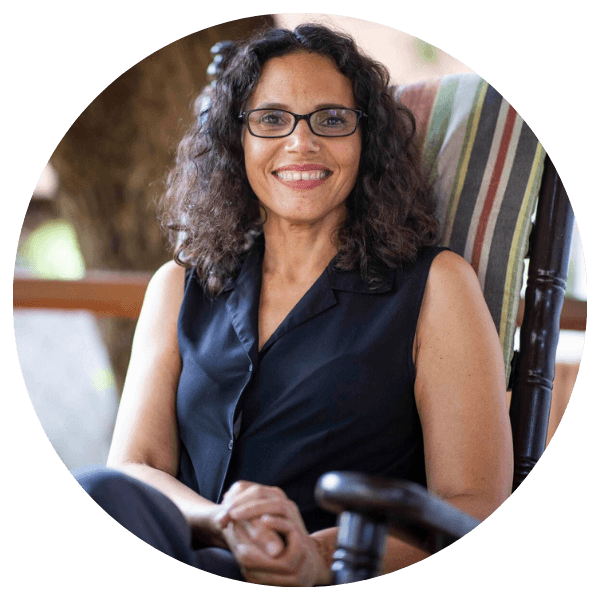
Lyvia N. Rodríguez Del Valle

Alejandro Cotte
Funders Alignment in Response of Disaster Recovery
As grantmakers we have the mission to continue supporting the efforts of the social sector by joining strategies, objectives and specific actions within us.

Glenisse Pagán
Collective Reimagining
Together we will explore how the commitment to “Collective Reimagining” can support the Filantropia network’s with generating more equitable opportunities and outcomes in Puerto Rico.

Bianca Casanova Anderson

Rachel Leonidas

José Ortiz Pagán
Recent Outlook on Endowments
A conversation on the effects the changing market environment has on endowments.
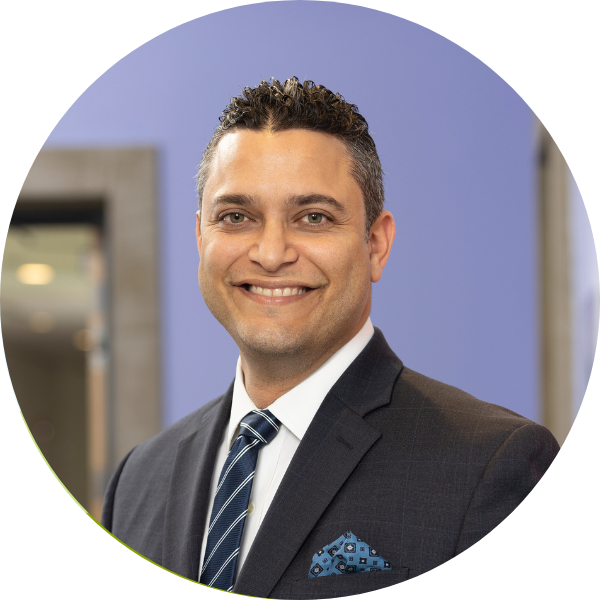
Hector González
Peer Groups: Our People at the Center
As grantmakers we need to continue listening among peers in the ecosystem to share experiences, perspectives, interests and strategize together to further advance the mission and agenda for the social sector.
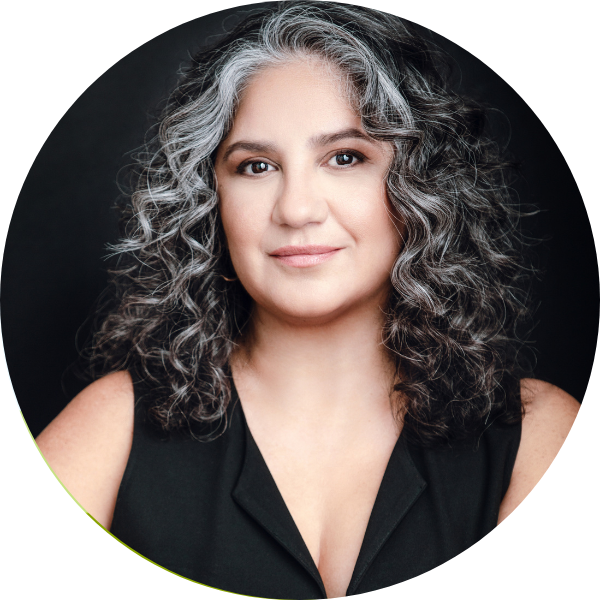
Dayani Centeno Torres

Anja Paonessa
Innovating: The why and what of co-creation
This final session will focus on co creating the future of our collective. We will share FiPR future plans and unpack the different ways we come together that inspire us to innovate the present and future of Puerto Rico.

Glenisse Pagán

Anja Paonessa
FiPR’s Guide to Puerto Rico
Nothing excites us more than knowing that there are people interested in getting to know our island! Which is why our FiPR team has assembled a list of places in Puerto Rico where you can host events or meetings, as well as places to eat and have fun.
Culture, Participation & Privacy Guidelines
We want you to experience our annual convening as a chance to continue building our philanthropic community by enabling collaborative discussions that allow diverse grantmakers to work together and scale up their impact in Puerto Rico. Discussions should be lively, yet respectful, and always seek to bridge the gaps between diverse opinions, cultures, interests, and backgrounds, while staying focused on our mission to improve the lives of the marginalized.
You may tag us on Facebook, LinkedIn or Twitter, and use the #convenePR hashtag so other attendees can find your posts.
Sessions might be recorded for archival purposes and available for our members.
This content is for FiPR use only and may appear on our website, newsletter, social media pages, or future promotional material.
While fundraising is prohibited, we do encourage you to share what you learn and to refrain from doing so if the speakers explicitly request confidentiality.
Please abide by our Culture, Participation & Privacy Policy.
COVID-19 Guidelines
Vaccination and masks are not required. The meeting room should allow us to be comfortably spaced. We understand that there will be a mix of perspectives and needs among group members, and we trust that we can all respect and support that diversity.

